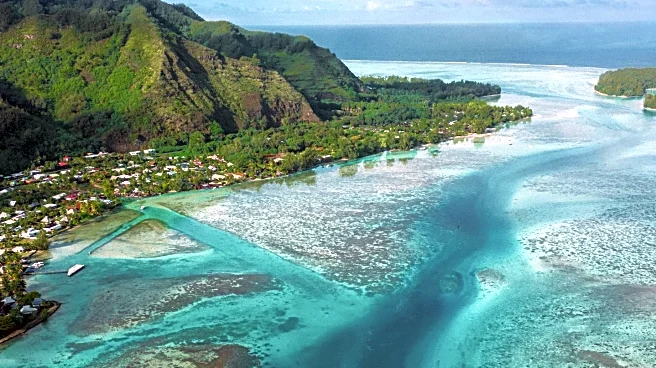What's Happening?
Gayatri Reksodihardjo-Lilley, a marine biologist and conservationist, has made significant contributions to reef conservation in Indonesia. She co-founded the LINI Foundation in 2008, focusing on sustainable aquaculture and reef restoration. Her work
involved training local communities in aquaculture and sustainable fishing practices, leading to the recovery of fish populations and coral reefs. Her approach emphasized community involvement and ownership, fostering sustainable livelihoods and environmental stewardship. Reksodihardjo-Lilley's efforts have been recognized internationally, and her legacy continues to impact coastal villages in Indonesia.
Why It's Important?
Reksodihardjo-Lilley's work is crucial for the preservation of marine ecosystems and the livelihoods of coastal communities. By integrating conservation with community development, she has provided a model for sustainable environmental management. Her initiatives have helped restore damaged reefs, which are vital for biodiversity and the fishing industry. The success of her projects demonstrates the importance of community engagement in environmental conservation, offering lessons for similar efforts globally. Her legacy highlights the potential for grassroots movements to effect meaningful change in environmental and social contexts.
What's Next?
The continuation of Reksodihardjo-Lilley's projects by local communities and organizations is essential for sustaining the progress made in reef conservation. The LINI Foundation and other stakeholders may expand their efforts to other regions, adapting her model to different environmental and social contexts. Policymakers and conservationists could leverage her approach to enhance collaborative management of marine resources. The ongoing involvement of trained local leaders and communities will be crucial in maintaining the health of the reefs and the prosperity of the villages.
Beyond the Headlines
Reksodihardjo-Lilley's work raises important ethical considerations about the role of local communities in conservation efforts. Her approach challenges traditional conservation models that often exclude local voices, advocating for a more inclusive and participatory framework. This shift could lead to long-term changes in how conservation projects are designed and implemented, emphasizing the importance of cultural sensitivity and community empowerment. Her legacy may inspire future conservationists to prioritize local knowledge and collaboration in their efforts.

















